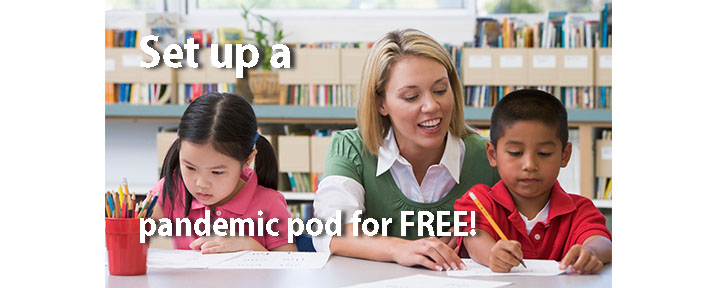
While K-12 schools are playing tug of war as they make decisions about online or on campus classes this fall, “pandemic pods” or “learning hubs” are popping up in the Bay Area. These pandemic pods or learning hubs are in-person groups where a small number of students work with a teacher in small group settings.
Wealthy families band together to hire a teacher to work with their children to ensure that they get the academic instruction they need so they don’t lose momentum and they’ll be ready to move on next year. I’m setting up these pandemic pods for families as they prepare for the new school year. They pool their dollars to create classes for their children – usually reading, math and science. Wealthy families typically have the funds to make sure their children don’t slip through the cracks.
Low-income families, however, don’t usually have that luxury, which causes a socio-economic rift that continues to widen the gap between the haves and the have nots. But in San Francisco, the SF Dept of Children, Youth and their Families has created learning hubs for 6,000 low-income students. They have targeted students who don’t have computers, internet, or stay-at-home parents – the students who were left out of online zoom classes last spring. These 40 hubs are located walking distance from public housing, foster care, homeless youth, and others who need more support during the shelter-in-place and online classes. And all of these services are completely free to these students.
These learning hubs will operate out of the Parks and Rec Dept and other nonprofit organization sites. They’ll have computers and internet connections so they can participate in online classes, and they’ll also have teachers available to help them on site. These students will also have access to meals and snacks, exercise, and other students. The hubs will serve kindergarten through 6th grade students and they’ll be open Monday through Friday during school hours.
For families that aren’t wealthy or don’t have access to learning hubs, they can also create their pandemic pods and set up classes in their homes for FREE. The hosting families organize the pods by hiring their teachers, purchasing materials, and recruiting 2-4 students. The tuition that the other students pay will cover the teacher’s wages and materials. With a little planning and ingenuity, the hosting family benefits from these classes and they don’t need to be wealthy to do it. I’ve written a book that lays out all the steps to set this up. So the pandemic pods don’t have to be separate but unequal.
